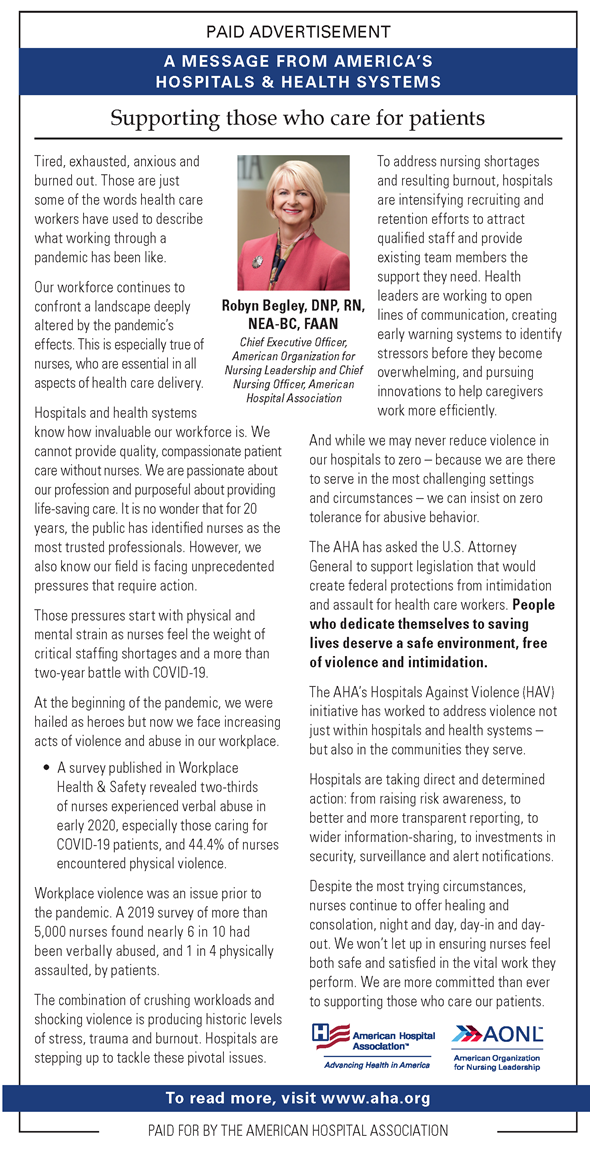

Supporting Those Who Care for Patients
by Robyn Begley, DNP, RN, NEA-BC, FAAN
A Message from America's Hospitals & Health Systems
As Seen in USA Today
Tired, exhausted, anxious and burned out. Those are just some of the words health care workers have used to describe what working through a pandemic has been like.
Our workforce continues to confront a landscape deeply altered by the pandemic’s effects. This is especially true of nurses, who are essential in all aspects of health care delivery.
Hospitals and health systems know how invaluable our workforce is. We cannot provide quality, compassionate patient care without nurses. We are passionate about our profession and purposeful about providing life-saving care. It is no wonder that for 20 years, the public has identified nurses as the most trusted professionals. However, we also know our field is facing unprecedented pressures that require action.
Those pressures start with physical and mental strain as nurses feel the weight of critical staffing shortages and a more than two-year battle with COVID-19.
At the beginning of the pandemic, we were hailed as heroes but now we face increasing acts of violence and abuse in our workplace.
- A survey published in Workplace Health & Safety revealed two-thirds of nurses experienced verbal abuse in early 2020, especially those caring for COVID-19 patients, and 44.4% of nurses encountered physical violence.
Workplace violence was an issue prior to the pandemic. A 2019 survey of more than 5,000 nurses found nearly 6 in 10 had been verbally abused, and 1 in 4 physically assaulted, by patients.
The combination of crushing workloads and shocking violence is producing historic levels of stress, trauma and burnout. Hospitals are stepping up to tackle these pivotal issues.
To address nursing shortages and resulting burnout, hospitals are intensifying recruiting and retention efforts to attract qualified staff and provide existing team members the support they need. Health leaders are working to open lines of communication, creating early warning systems to identify stressors before they become overwhelming, and pursuing innovations to help caregivers work more efficiently.
And while we may never reduce violence in our hospitals to zero – because we are there to serve in the most challenging settings and circumstances – we can insist on zero tolerance for abusive behavior.
The AHA has asked the U.S. Attorney General to support legislation that would create federal protections from intimidation and assault for health care workers. People who dedicate themselves to saving lives deserve a safe environment, free of violence and intimidation.
The AHA’s Hospitals Against Violence (HAV) initiative has worked to address violence not just within hospitals and health systems – but also in the communities they serve.
Hospitals are taking direct and determined action: from raising risk awareness, to better and more transparent reporting, to wider information-sharing, to investments in security, surveillance and alert notifications.
Despite the most trying circumstances, nurses continue to offer healing and consolation, night and day, day-in and dayout. We won’t let up in ensuring nurses feel both safe and satisfied in the vital work they perform. We are more committed than ever to supporting those who care our patients.


